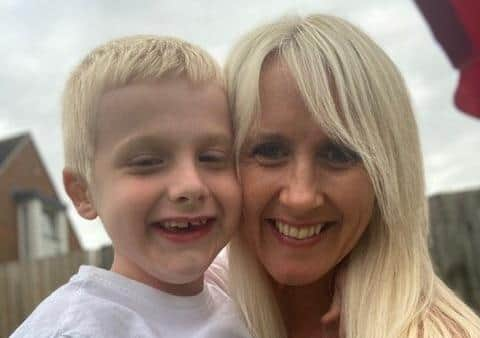Lower Beeding mum’s marathon mission for charity supporting son with incurable condition
and live on Freeview channel 276
Maxine Foster will be running three marathons in five weeks to raise money for Harrison’s Fund which is working to find a cure for Duchenne muscular dystrophy which her son, Austin, was diagnosed with in 2015.
She said: “I want to help make a difference so that Austin and all others suffering from the disease can grow into the strong men they are meant to be.
Advertisement
Hide AdAdvertisement
Hide Ad“I consider myself so lucky to be surrounded by so many people who support our family and I ask you to continue to support us and donate. Every single penny really does count and I am always so grateful. Team Austin won’t ever give up until a cure or treatment can be found.”


The challenge kick-started on Sunday, September 12, when Maxine ran the Brighton marathon. She will then take on the London Marathon on Sunday, October 3, and will finish with the Manchester Marathon on Sunday, October 10.
“I wanted to challenge myself to three marathons because I have participated in marathons before but needed set the bar higher in the hope people would support me,” said the mum-of-two.
“My training plan has been going so well but sometimes the nerves get to me and I lack confidence in my ability.
Advertisement
Hide AdAdvertisement
Hide Ad“I fully intend to attack each marathon with a positive attitude knowing that I am doing all I can to help raise funds for Harrison’s Fund and play my part in ending Duchenne muscular dystrophy.”
Duchenne primarily affects boys and is 100 per cent fatal. Most children with it die in their late teens or early 20s.
Most are in a wheelchair by the age of 12 and it leads to respiratory failure and other debilitating orthopaedic complications.
To donate to Maxine’s fundraiser, click here